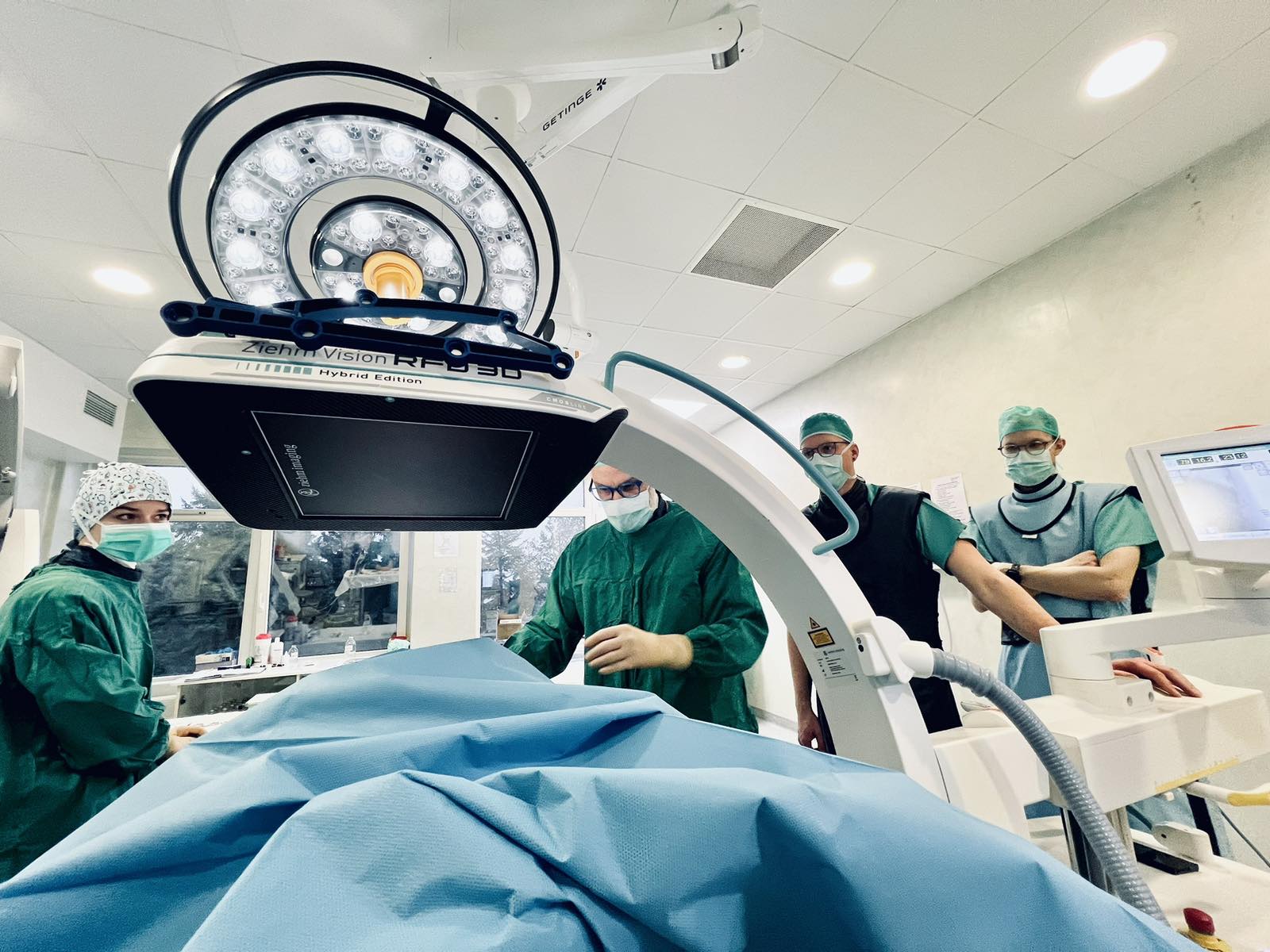LSMU Department of Anaesthesiology Awarded ESAIC International Accreditation for the Third Time

The Department of Anaesthesiology at the Faculty of Medicine, Lithuanian University of Health Sciences (LSMU), has been awarded international accreditation by the European Society of Anaesthesia and Intensive Care (ESAIC). This marks the only instance in the Baltic States where a residency facility for anaesthesiology-intensive care has met the stringent ESAIC requirements for the third consecutive time.
Prestigious for the Department and the Specialty Itself
ESAIC, the leading European Society for Anaesthesia, Intensive Care, Pain and Perioperative Medicine, aims, among its various activities, to enhance anaesthesia training across Europe. It ensures that accredited centres adhere to the requirements for high-quality training. Following the initial evaluation, the Clinical Department of Anaesthesiology at the Faculty of Medicine of LSMU Medical Academy and the University Hospital was ranked among the top 16 ESAIC-accredited anaesthesiology residency centres in Europe.
ESAIC audits evaluate the infrastructure of residency facilities, the teaching structure, the expertise and engagement of the teaching staff, the balance between clinical training and didactic teaching, as well as the access to research activities. Evaluators visit either a single department or a group of hospitals recognised as a training base equipped to offer all the necessary clinical services for comprehensive training of anaesthesiologists.
The inspection focuses not only on the structure of the clinic as a training centre, but also on the residency training process. The structure encompasses resources like medical staff, premises, library, technical equipment, access to medical services, and opportunities for research and development. The study process evaluation covers the learning environment and the utilisation of available teaching resources. It includes checks on the presence of a study coordinator, the availability curricula and guidelines, the organisation of professional guidance, and the extent of senior doctors’ involvement in the training of junior colleagues.
The Department of Anaesthesiology at the Faculty of Medicine received its initial accreditation in 2014. Prof. Andrius Macas, Dean of the LSMU Faculty of Medicine and Head of the Department, notes that the evaluation process takes almost a year.
“It takes time, but it’s undoubtedly worth it, as this accreditation significantly boosts the visibility of the anaesthesiology residency facility across Europe. The accredited facility serves as a centre for competence development, welcoming residents from any country for training. Funding is available for this. In terms of international outreach, the prestige extends not only to the University and the Department but also for the specialty itself. There is no other base in Lithuania with such a status,” remarked the Dean, who also noted that with each accreditation, the requirements become more stringent, making it increasingly challenging to secure each time.
Prioritising the Well-Being of Residents
According to the Dean of the Faculty of Medicine, this year, the auditors evaluated the processes implemented in the Department of Anaesthesiology, along with their execution and quality.
“The assessment centred on whether the approved commitments were actually being implemented, and whether the adopted procedures were being followed. Thus, one could argue that it was the everyday operations that were scrutinised – not the furniture, equipment, or operating rooms. Within the residency base, considerable attention is devoted to the well-being of future doctors. We have a
lot of residents in our Department, in whom we have great faith, allowing them the freedom to take action based on their own initiative. However, there’s a risk of overburdening residence when they are proactive and performing well. Consequently, the evaluators looked at whether the residents adhere their working hours, have a designated rest schedule, are adequately supervised, and receive counselling and feedback at the end of their shifts. Although the lectures at the Department of Anaesthesiology, Dr. Jurgita Borodičienė and Assoc. Prof. Aurika Karbonskienė, significantly contributed to the accreditation process, they could not have influence the outcomes of the assessment at that stage”, noted Prof. Dr. A. Macas.
He highlighted the rigour of the ESAIC accreditation process, noting that the auditors conducted interviews not only with staff and residents but also with colleagues from Vilnius University and the Lithuanian Society of Anaesthesiologists and Intensive Care Physicians, with whom we pursue collaboration in resident training.
